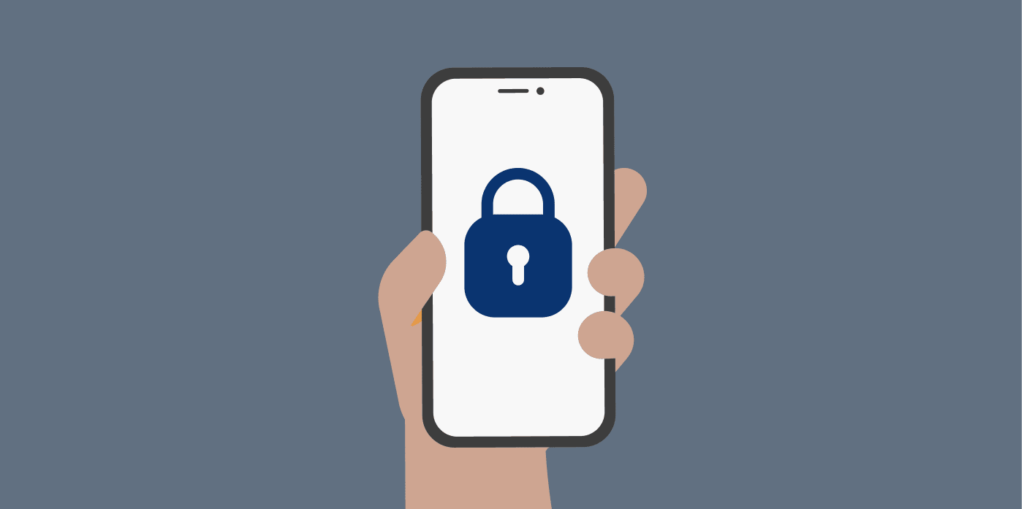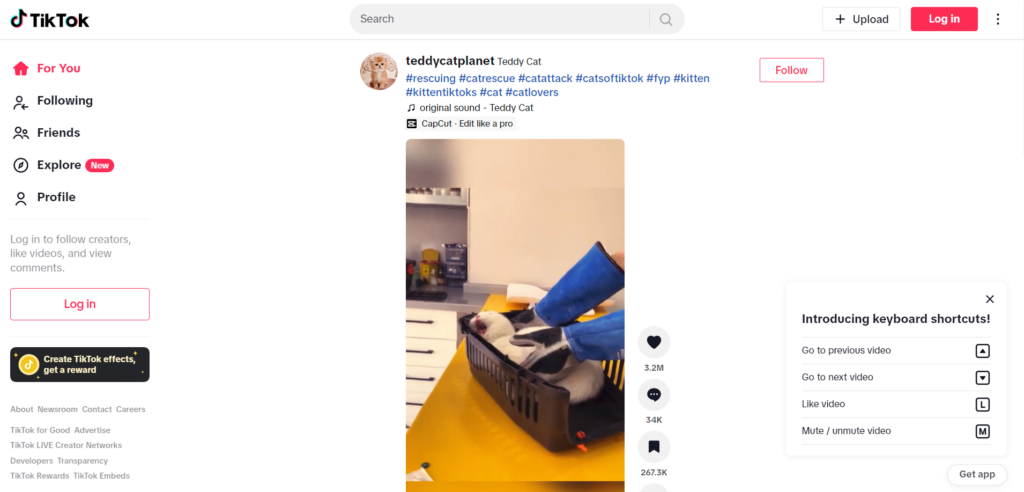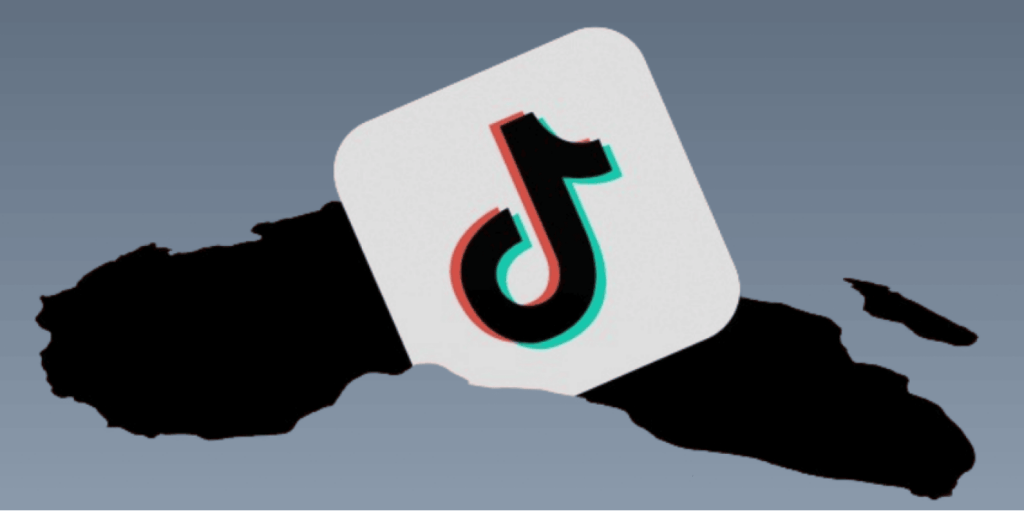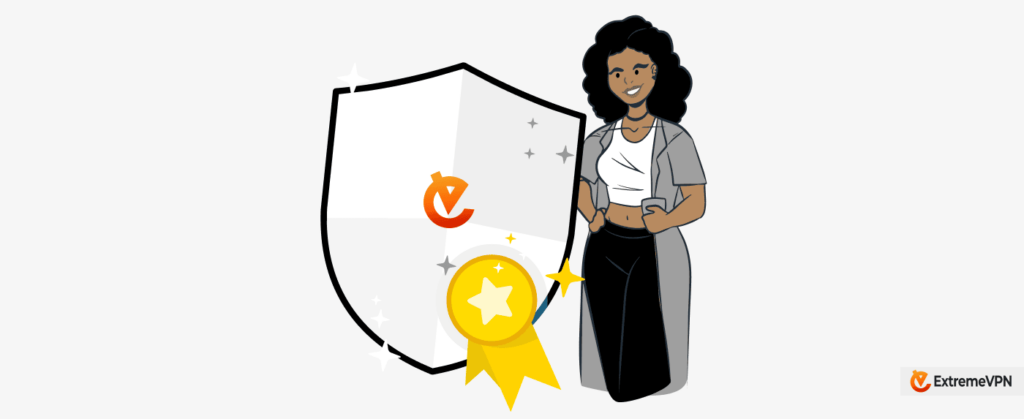TikTok’s rise to popularity is one of the most impressive stories for a social media platform in recent times. With over 2 billion active monthly users and millions more joining, the platform isn’t slowing down.

However, popularity comes with controversy—and TikTok has had its fair share since blowing up in 2019. While this isn’t the first time a social media platform has crossed ethical and political lines, TikTok seems to have overplayed its hand.
In this article, we’ll explain why TikTok is banned in various countries and provide other important ban updates, such as whether or not you can bypass the ban with a VPN.
Why is TikTok Banned?
If you’re wondering if TikTok is banned for everyone, the answer is no. However, the ban is real and is happening in some countries for different reasons. Some of the top reasons governments have given for pulling or restricting the platform are:
Internet Censorship
Countries with major restrictions on Internet use are often among the first to try to dictate how people use apps. This is especially relevant for texting and social media platforms. People use these platforms to communicate, share ideas, and receive news from different sources.

These governments control the content that reaches their citizens, so they don’t appreciate social media’s freedom. Some TikTok banned countries include Russia, Bangladesh, Afghanistan, and Indonesia, etc.
Surprisingly, you can’t even use TikTok in China, even though the app belongs to a Chinese company. This is particularly strange because it has a twin version called Douyin, which is available to Chinese people.
Child Safety
Popular social media platforms like Facebook and X (formerly known as Twitter) are mostly used by older people. However, TikTok’s top users are young people. In fact, according to Statista, up to 67% of users on the platform are under the age of 19.

While this demographic has helped the app become popular, how they use it is a cause of concern. Like other social media platforms (Omegle, Likee, and Snapchat), which are popular with young people, TikTok doesn’t have many security features to keep them safe online.
This means that minors on the platform face lots of risks. For example, they could be exposed to mature content or have their data stolen by TikTok itself. This is especially troubling as the platform was caught illegally using children’s data and asked to pay a fine of £12.7 million as recently as 2023.
Political Reasons
A Chine company, ByteDance owns TikTok. So, countries like Australia, Canada, the US, and some EU nations worry that the platform could be risky for national security. These governments feel this way because China has a strong hold on the companies operating within the country.
Moreover, a hacker group called Anonymous claimed that TikTok is a spyware app. That said, these are rumours, and there is no clear proof that TikTok is sending the data it collects to the Chinese government.
Concerns over Data Privacy

A running trend in TikTok controversies is how the platform collects and uses user data. This privacy and security issue is one of the most common reasons countries ban the app.
Here are some worrying signs about this issue:
- There are many permission requirements: When you install the app, it might require deeper access to work well. For this, the app will ask for your permission. It gets access to your microphone, location, camera, and other parts of your phone that have nothing to do with the app.
- Vague privacy policy: Many EU countries ban the app because of its unclear privacy policies. Steve Huffman, CEO of Reddit, was among the first to point out how TikTok’s privacy policies might harm users.
- Data harvesting: Since TikTok connects to many parts of its users’ phones, it collects lots of data. In fact, the sheer size of the data collected was one of the things that set off the alarm bells.
- Data breaches: If having poor privacy policies and security measures wasn’t bad enough, TikTok also isn’t safe from cyber attacks. The app has several security problems.
- Off-app data monitoring: Like Facebook and other social media platforms, installing TikTok on your device gives it unlimited access to your data. That also means your browsing history and shows that the platform continues to track users even when they exit the app.
Is the ban justifiable based on what we know about the platform? Let’s find out more.
What Kind of Data Does TikTok Collect?

We read TikTok’s privacy policy and found that the app collects three kinds of data: third-party, user-provided, and automatically collected data.
But what does any of that mean? Let’s break it down:
- Third-party data is information obtained from other platforms, like Google or Facebook. It also includes publicly available data, such as how you interact with ads or the information you provide on e-commerce sites.
- Conversely, user-provided data refers to personal information like age, identity, and contact details. It also includes information about your purchases and the content you generate.
- Automatically collected data includes your location and biometric details. Interactions with other users, shared media, cookies, device information, IP address, and other technical data also fall into this category.
Although TikTok seems more committed to collecting users’ data than protecting their privacy, this isn’t new. Platforms like Twitter, Facebook, and Google have been collecting, storing, and selling user data for years.
So, it’s great for online privacy and safety that countries stand against platforms that misuse user data. On the other hand, it often seems like TikTok gets all the blame while other social media platforms do similar things without facing much consequence.

Which Countries have Banned TikTok?
Several countries have taken a firm stance regarding concerns over TikTok’s security. In recent months, a wave of bans and restrictions have swept across nations, prohibiting the use of the popular app on government devices. Let’s take a look at this growing list:
Partially Banned
Many countries impose partial bans on TikTok usage. Usually, that means government officials can’t use the app, but regular citizens can still access it.
The countries in this category are:
- The European Union (EU): The European Union kicked things off in March 2023, implementing a TikTok ban for the EU Council, European Parliament, and European Commission workers.
- Belgium: Belgium followed suit, citing safety concerns for prohibiting the app on government devices.
- Denmark: Denmark didn’t hold back either. First, the Danish Ministry of Defense limited access for government employees in March due to security risks. Then, in April, Danish universities joined the movement, banning students from using TikTok on campus.
- France: In March, the government issued a widespread ban in France. This prevented government workers from accessing TikTok and other social media platforms on their devices.
- Latvia: Latvia took a similar approach in early 2023, with the Latvian Foreign Ministry blocking TikTok access for employees due to security worries.
- The Netherlands: While it imposed a partial ban, the Netherlands took a slightly softer stance – more of a recommendation against using the app rather than an outright prohibition.
- Norway and the United Kingdom: Norway and the United Kingdom aligned with their European counterparts, banning TikTok on government devices in early and mid-2023, respectively. This act was to ensure privacy and security rationales.
- Taiwan: Across the globe, Taiwan has maintained a strict no-TikTok policy on government devices as a matter of national security, continuously monitoring the app for emerging risks posed by its Chinese origins.
- Australia and New Zealand: Australia joined the fray in April 2023, prohibiting TikTok access on government devices due to security concerns. New Zealand followed a month earlier with an official document forbidding Parliamentary employees from using the app on their work devices.
- Canada: In North America, Canada led the charge in February 2023, deeming TikTok’s “unacceptable” level of security and privacy risks as grounds for a government device ban.
- The United States: The United States’ TikTok ban differs slightly from the other countries in this category. As far back as December 2022, government devices were already prevented from carrying or using TikTok. Then, in March 2023, the US Restrict Act was passed. The Act allowed the government to ban technologies linked to foreign adversaries like Venezuela, Iran, Russia, China, North Korea, and Cuba. Although this Act angered many Americans, and TikTok’s CEO, Shou Zi, tried to lobby against it, the Senate moved on with the bill. Consequently, many states accepted the act. Montana was among the states that have banned TikTok.
Completely Banned
Here is the list of countries that completely restrict TikTok usage:
- Afghanistan: After taking over the government in late 2021, the Taliban banned TikTok and many other websites and apps in April 2022. They claim that these platforms produce misleading content, and the ban is to protect younger generations.
- Bangladesh: Like most other online platforms, TikTok is heavily censored in Bangladesh. The government believes that the app spreads inappropriate content.
- India: In 2020, the Indian government banned its citizens from using TikTok and other China-linked applications due to national security fears. Before then, TikTok was very popular in India, with over 200 million active users.
- Indonesia: Regarding which country banned TikTok first, current records show it was Indonesia. The Asian nation banned TikTok as early as 2018, long before the app became the global sensation it is today
- Russia: The Russian government has permanently banned TikTok, Google News, Facebook, Instagram, and other major social media apps. Why? It believes that these platforms are Western-centric and spread misinformation about Russia.
It is important to note that while TikTok might have a deeply flawed way of handling user data, it’s no different from other popular social media platforms. Some security experts don’t consider it more dangerous than Facebook or Google.
As data privacy and national security remain pressing issues, it’s clear that the scrutiny surrounding TikTok’s data handling practices has prompted a global response – one that could shape the future landscape of social media regulation.
Now, let’s examine what makes the US’s take on the TikTok ban different and what it means for the app’s fate.
Why Does the U.S. Want to Ban TikTok?

TikTok has over 100 million users from the United States alone. Although this growth is fantastic for the platform, it concerns governments and security experts worldwide, particularly the US. The US believes that the Chinese Communist Party (CCP) may be able to access sensitive information on millions of Americans.
As you already know, TikTok collects a lot of user data. Since a Chinese company owns the app, Chinese authorities can request user data from TikTok, and it must comply.
According to Anton Dahbura, executive director of the Information Security Institute at Johns Hopkins University, “The biggest issue is that users are largely unaware of the risks of foreign governments using their user data. People would be shocked about how our trails of breadcrumbs from our mobile devices and other platforms can be used in different ways that can threaten national security.”
The US has been considering banning TikTok for a while now, and Republican lawmakers in Congress mostly push the motion. They fear that TikTok’s parent company, ByteDance, might be using user data to track location and history, which could help spread misinformation.
According to a CNN report, Michael McCaul, Texas Republican Representative and House of Foreign Affairs Committee member sponsoring the TikTok ban bill, “Anyone with TikTok downloaded on their device has given the CCP a backdoor to all their personal information. It’s a spy balloon into their phone.”
On the other hand, while Democrats were mostly quiet about the bill in the past, more of them are speaking up to support it now.
Challenges of Banning TikTok
TikTok did try to fight back legally against the law or bill that aimed to ban it (probably in court), but their challenge didn’t work — the effort failed.
Another problem that the governments might face is how their youth is going to look at these bans — TikTok has millions of users in every country, and banning it may negatively influence them against the laws. Following the ban, many of the platform’s users started to shift to RedNote (a TikTok alternative).
In addition, many Small and Medium Sized businesses rely on the platform to sell their products through TikTok shop. Throughout the ban saga, there have been petitions to keep the app alive and protests opposing the ban — even some lawmakers have voiced their support for TikTok.
How to Bypass TikTok Limitations

The most easiest and simplest way to bypass the ban is using a VPN. VPNs are powerful cybersecurity tools that help you browse the internet freely and securely. That means no censorship, bans, or geopolitical restrictions can stop you from accessing any content, service, app, or website.
Even better, a VPN hides all your browsing activities. This means nobody can monitor you, not even your government, internet service provider, hackers, or cyber threats.
This is possible because VPNs give you an anonymous IP address, which changes your location and encrypts your internet traffic. So, when you go online, you are invisible to prying eyes, as if you’re in a different location.
But before downloading and using a VPN, check if your locale allows it. Although VPNs are legal in most parts of the world, some countries (e.g., China) ban their usage. Also, don’t try using a VPN to do something illegal. Your actions will still be illegal, with or without a VPN.
Let’s see how you can use a VPN to access TikTok safely.
How to Change Your TikTok Location with a VPN

1. Pick a Reputable VPN Service Provider
To access TikTok in a country that banned the app, subscribe to a trusted provider like ExtremeVPN rather than a free one. Free VPNs are no better than TikTok and will collect and sell your data.
Conversely, premium services like ExtremeVPN are more reputable and proudly display their No Logs policy, which means they don’t track you. Plus, you enjoy top-of-the-line unlimited cybersecurity features, compared to the limited coverage offered by free VPNs.
2. Create an Account
Sign up for ExtremeVPN for a yearly plan at $3.29 monthly. Even better, there is a 30-day money-back guarantee if you don’t like the service.
3. Download and Install the App
Download and install the ExtremeVPN app on all the devices you wish to protect. We offer dedicated apps for all operating systems, including Linux, Windows, Android, iOS, macOS, or other software. The best part: you can connect up to 10 devices on a single subscription.
4. Launch the App and Connect to a Server
Run the app and select “Locations” to pick from over 6,500 servers spread across the globe. Pick a virtual location, preferably in a country that allows TikTok usage. Once you select the location and connect the VPN, your real location and IP address will switch to virtual ones.
5. Turn on the VPN
Press the button in the centre of the screen. You can now enjoy your favourite TikTok creators without worrying about your online safety.